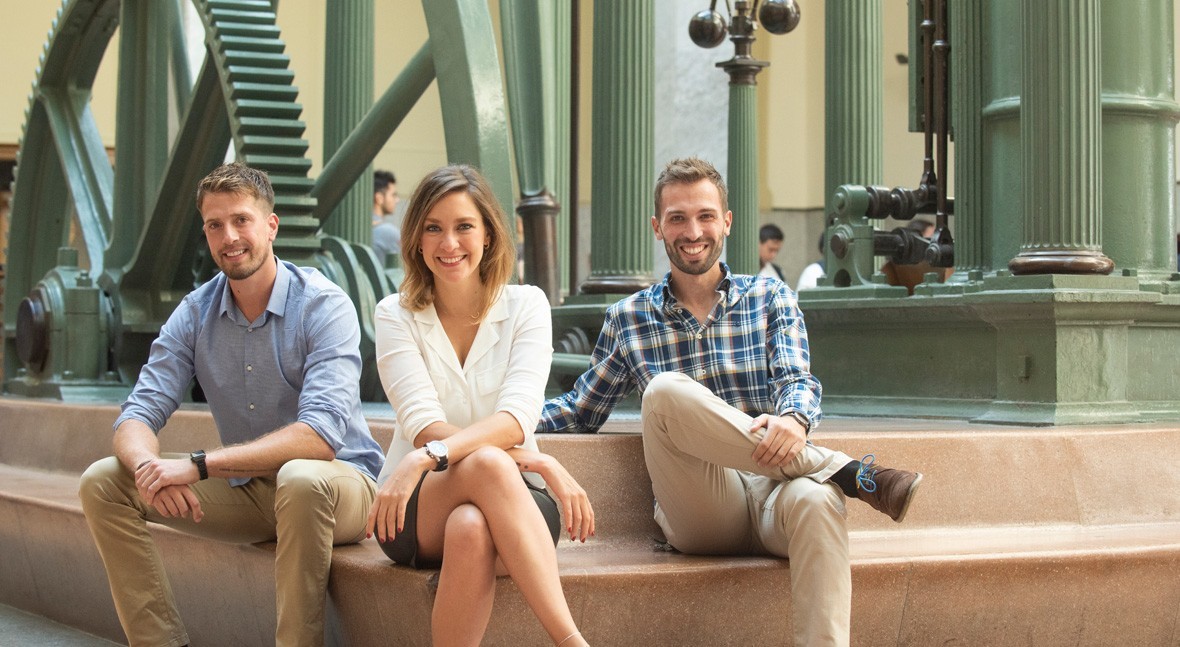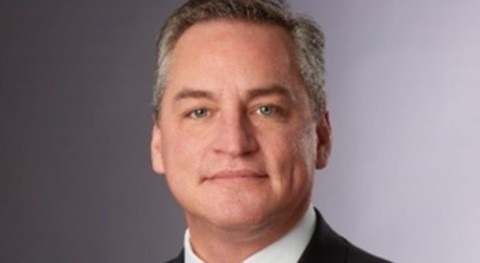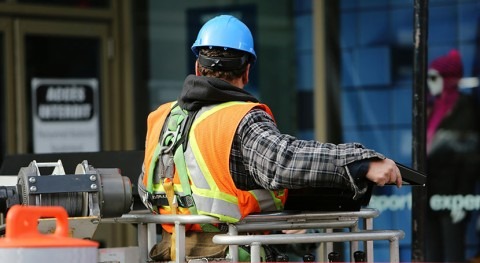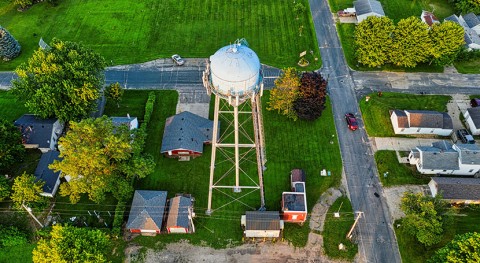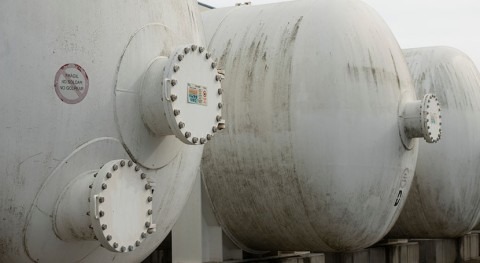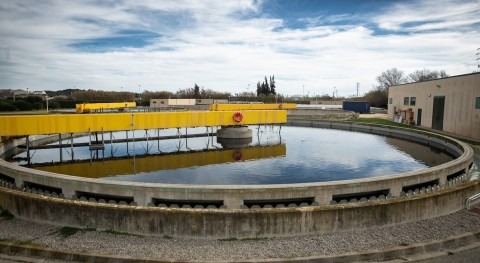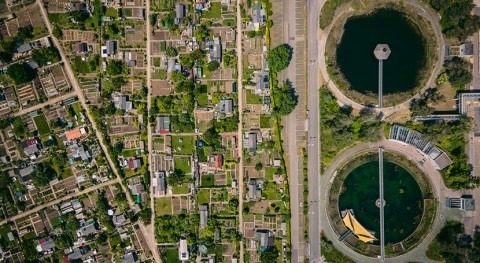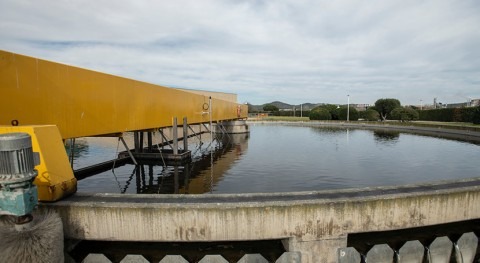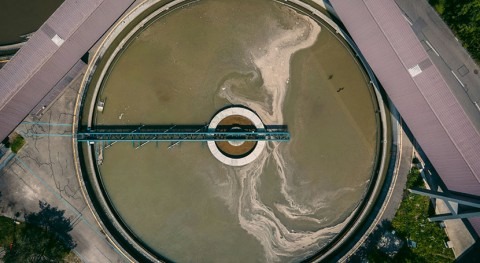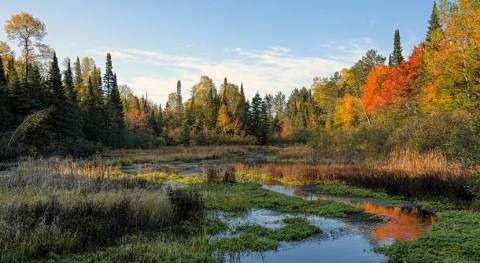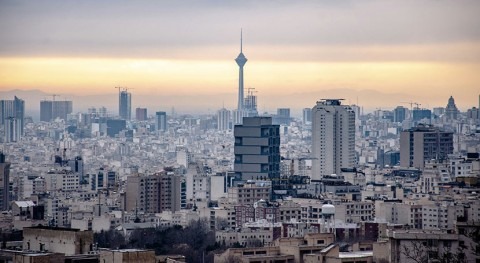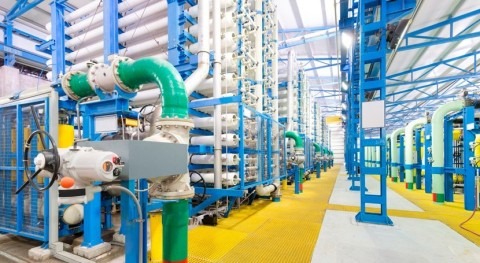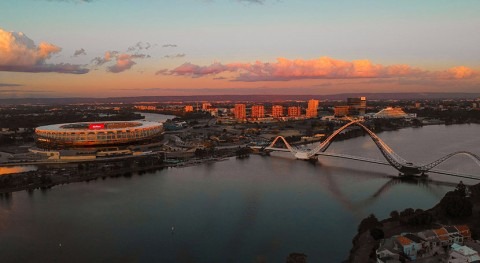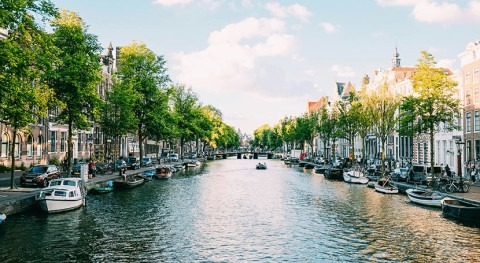Young Water Professionals is the Spanish Chapter of young water professionals of the IWA (International Water Association), supported by the Spanish Association of Water Supply and Sanitation, AEAS. The Spanish Chapter of YWP intends to become established as the leading young professionals network for the water sector in Spain, serving as a networking platform for young people in the sector.
Its objectives include making the network known, and proposing events at the national and international level, such as the next national congress which will be held on November 12-15 in Madrid.
The purpose of this congress, the first one with the new executive committee, is the exchange of knowledge and experiences among young professionals from the water sector, as well as providing networking opportunities.
We speak to Jorge Rodríguez Chueca, in charge of Training and Technology at YWP; Alejandro García Monteagudo, in charge of Events at YWP Spain; and Águeda García de Durango, in charge of Communications and Public Relations, to learn a bit more about the association and the programme and activities of the next event.
Question: Can you tell me about your career up to your current positions?
Jorge Rodríguez Chueca: I ended up in the water industry by chance, we could say a nice chance. I graduated in Chemistry in 2008, majoring in inorganic chemistry, a career that I enjoyed and where I obtained a global vision of different fields within chemistry. However, the 2008 economic crisis made it difficult for me to enter the labour market. Luckily, I found a course to specialise in water pollution and treatment for unemployed university graduates. During the course, I realised the importance of water for everything in life, and decided to focus my career path in this field, getting into research. I earned a PhD in Chemical Engineering and Environment, studying new disinfection technologies to reuse waste water, and after several postdoctoral contracts in different universities in Portugal, Switzerland and Spain, in 2017 I got a job as Assistant Doctor Professor at the School of Industrial Engineering of the Polytechnic University of Madrid, where I carry out research in new technologies for water treatment and teach courses in the area of environment for different degrees.
Alejandro García Monteagudo: Although since I was a kid I knew I wanted to study Civil Engineering, the same as Jorge, as chance would have it, I chose to major in hydraulics and hydrology. I used to organise events with my friends while studying my degree, and so I started to like it. I have been working in the research, development and innovation (RDI) department of the water company Aguas de Alicante for 6 years, and during that time I have participated in several activities related to the water cycle; as part of the implementation of a European project I had to organise some workshops, and so I became once again involved in the organisation of events. At that point I decided to take a step forward within YWP, and became the person responsible for Events in February 2019.
Águeda García de Durango: I studied Environmental Science, but always knew my niche was communications. After working in consulting, I moved on to environmental communications, and from there on to the water sector with iAgua, where currently I am the chief editor. Since then, I have specialised in an area where there is a lot to be said, and where every day I learn something new. At YWP Spain I am in charge of Communications and Public Relations since May 2018.

Q: What inspired you to become part of the Young Water Professionals?
AGDD: For me, meeting people my same age who share my same interests and at the same time complement them was key. I think that creating the YWP network was something needed in Spain, because the 'visible face' of the sector did not represent the whole range of male and female people working in it.
AGM: As Águeda says, we had to show that young people are able to do great things in the water sector, and that inspired me to join the chapter. Once I was part of it, I realised that we should not feel less useful just because we are young; we can create a valuable network of contacts, while learning not only about our own area of specialisation, but about all of them.
JRC: My case is quite similar to Águeda's and Alejandro's. When I learned about the creation of the YWP Spanish Chapter, I thought it would be a huge opportunity, not only to contribute my knowledge of the water sector, but to network with young people with similar interests and with knowledge that complements my own interests. And the truth is I was right when I became a member.
Q: As young people in the water sector, what can you contribute to sector organisations?
AGM: Thanks to all the information we can access, we currently have a global vision of the water cycle, as well as of everything around it. If we add that current jobs demand increasingly multidisciplinary profiles, we have as a result some obvious synergies. Nowadays you do not hire someone because of their degree, but because of what they can do, their potential.
AGDD: Exactly, and that has nothing to do with age. On the other hand, our generation grew up at the same time as the fastest technological development in history took place, so we have a certain advantage when it comes to developing and handling digital tools in the sector. And that is currently one of the most demanded skills by entities involved in water resource management.
JRC: To that we should add that ours is one of the best educated generations, we could even say that it is almost too educated. Also, we have ambition and are eager to make our contributions to the sector. I can see that in research, where young people are eager to find new solutions for the sector to help society progress and improve the environment.
The role of young people is and should be essential to accelerate change in integrated water management - Águeda García de Durango
Q: What are the main demands of young people that choose a career in the water sector?
AGM: We would like to be treated the same way as more senior people in the sector. Obviously, it is not same to have one year of work experience than to have twenty years of work experience. But it seems just because you are young you have a handicap, because you lack experience.
AGDD: Visibility is essential for young people.
JRC: I agree with Alejandro and Águeda. I think I would also add trust to their demands. It is not my case, but it happens to many colleagues: way too often age is seen as a problem instead of an advantage. As Alejandro says, a young person does not have the same experience as a more senior person, but can have interesting qualities like freshness, ambition, and new ideas. Lack of trust and opportunities end up discouraging people, whose careers stall, and so we lose people with extremely interesting profiles. I see this every day in research.
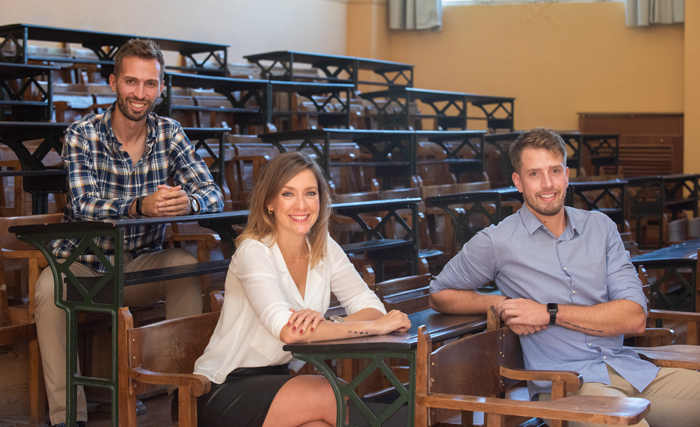
Q: After the success of the first edition in Bilbao, this November you organise in Madrid your second annual congress. What activities can congress attendees look forward to?
JRC: Indeed, we expect this congress to be at least as successful as the one held in Bilbao; right now I can say that the organising committee is going to great lengths to ensure it, and we hope participants will be pleasantly surprised. Concerning the programme, we expect some interesting ideas, aside from traditional scientific-technical presentations, which I anticipate will be high quality; it was difficult for the scientific committee to select only some of them, given that more than 100 submissions were received.
AGM: As Jorge says, the Bilbao event set the bar high, and we know it will be difficult to outshine that. Hence, we have used all the feedback we received from last year's participants to improve the Madrid event in all aspects possible. Therefore, this year not only have we focused on presentations, but also there will be important developments.
AGDD: Absolutely. There will also be some surprises for attendees, not everything will be presentations! The best thing is to register for the congress to be able to participate in all the activities we are organising.
Q: What will be the core themes addressed in the congress?
AGDD: The event is organised into 4 main themes: the water cycle, new emerging technologies, water 4.0 and economy and governance. This does not mean that other issues of interest, such as water quality, treatment, climate change, etc., will not be addressed as well.
AGM: Exactly, what we tried to do is to include as large a number of themes as possible, while also looking at them in depth, so that participants take away at least one new idea from each of the themes.
JRC: To add to the comments of my colleagues, I would like to emphasise the significant scientific profile of the work to be presented. I hope this congress can be an important meeting point between businesses and universities, because both of them should work closely. Companies should value the efforts done at universities with very few resources, obtaining results that are very interesting for the sector's technological development. Moreover, universities have to realise that their research should focus on the needs of industry and society.
Increasing RDI investments is important to optimise water resource management - Alejandro García Monteagudo
Q: One of the main advantages of attending the event is to be able to network with presenters and other attendees. What profiles do you expect to see at the School of Industrial Engineering of the Polytechnic University of Madrid?
AGM: I think we will see different types of profiles, from highly qualified and specialised senior professionals, as speakers or to attend presentations, to university students that are keen to learn and get to know the water sector. We will also see some very technical profiles, specialised engineers, or some focused on legislation and governance.
JRC: And we cannot forget that the congress also had an impact abroad: we have received some submissions from neighbouring countries. If we had to do a profile of the average participant, I imagine it would be a young water professional, not necessarily a member of YWP, and potentially working in RDI (both in the public and in the private sector). Nevertheless, we hope, and for us this would mean a great success, to welcome some senior water professionals willing to share their experience with congress attendees.
Q: Let us travel to the near future: Madrid, November 18. What results do you expect from the congress?
JRC: This is not just another congress, it should mean the consolidation of the YWP Spanish Chapter, showing to the water sector that young people want to play an important role in the decisions that affect the sector. We hope the congress will be useful for each and every participant. We would like people to be satisfied showing their results to a specialised forum, and we hope attendees are pleased with the speakers. Furthermore, we hope they are satisfied with the organisation of the event, that is our objective.
AGDD: I believe it will be an rewarding experience for all, participants and organisers. If people are as pleased with it as they were with the congress held in Bilbao in 2017, we should be happy.
AGM: Of course, and aside from making new contacts, and even though they may be tired after four days non-stop, I hope they take away at least one new idea from each of the congress themes. If, in addition to that, new project collaborations emerge, then that's great.

Q: What do you think the role of young people is in this changing scenario of digitalization?
AGDD: As I mentioned earlier, our generation grew up at the same time as the fastest technological development in history took place. Growing up like this, we have innate digital skills, and the water sector demands this kind of professionals. So the role of young people is and should be essential to accelerate change in integrated water management.
JRC: As Águeda says, our generation is living a very fast technological transition. It is not going to stop, and sometimes innovations happen even faster than the time it takes to apply them at a large scale in the sector. It is thus necessary to have professionals that can adapt and apply the changes. Increasing RDI investments is important, to develop and apply approaches that optimise water resource management.
AGM: As Jorge says, the water sector is not immune to the generational change taking place (the role of the cloud, from Excel to deep learning, etc.), and in a world where information and data are everywhere, we grew up living and learning with them. Who can ensure water cycle management adapts better than we can?


